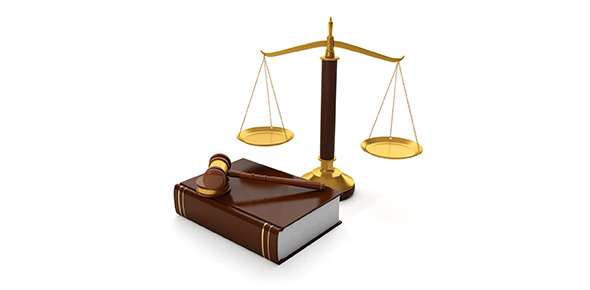Related Flashcards
Cards In This Set
| Front | Back |
|
McCormick v Grogan
|
Fraud theory
clearly states that the basis of their enforcement is fraud. The justification provided was in order to prevent personal fraud. This means that a deliberate intention to deceive must be shown Legally binding obligation it must be legally binding, not just a moral obligation. The court will not enforce moral obligations as secret trusts The testator made a will leaving all his property to X. On his deathbed he summoned X and informed him of the contents of his will and said a letter would be found within it. No undertaking was extracted from X and the letter contained the names of various persons but went on to state: ‘I do not wish you to act strictly to the foregoing instructions but leave it entirely to your own good judgement to do as you think I would if living…’ It was held that there was no legally binding obligation on X. “The real question is what did he intend should be the sanction? Was it to be the authority of a Court of Justice, or the conscience of the devisee?” It is necessary to show that the sanction of the court had been intended to enforce the gift before a secret trust could be imposed rather than simply a moral obligation |
|
Re Young
|
Dehors the will theory
They are not trusts arising from within a will, but are trusts arising outside or dehors the will. This requires that the trust is recognised and protected on the basis of a personal obligation that has been communicated to and accepted by the trustee/legatee. |
|
Ottaway v Norman
|
Constructive trust theory
It may also be asserted that secret trusts are simply part of the all-embracing constructive trust enjoying all the flexibility within. Evidence of this is seen where non-compliance with s.53(1)(b) was not a bar to enforcement of an oral trust |
|
Walgrave v Tebbs
|
Communication
the testator must communicate the fact that the property is to be subject to a fully secret trust to the legatee under his. If there is no communication the legatee may take the property absolutely even if it is possible to prove that the testator intended him to hold it on a fully secret trust. A testator left £12K and certain lands to two persons apparently absolutely and as joint tenants. Shortly before his death he asked his executor to write to the two persons informing them of the objects towards which he wished them to apply the money and property. The executor wrote the letter but never sent it. The question arose whether the persons were bound by the secret trusts being informed of the testator’s wishes after his death. It was held that there was no secret trust, and that the two persons were entitled to the property for their absolute benefit. Time for communication a fully secret trust can be communicated at any time during the testator’s lifetime. It is irrelevant for these purposes whether the fully secret trust was made known to the legatee before or after the date of the will Acceptance the legatee must accept the fully secret trust, this can be either an express or implied from the circumstances or conduct. It was held that ‘where a person either expressly promises, or by silence implies, that he will carry the testators intentions into effect and the property is left to him upon the faith of that promise it is in effect a case of trust’ The legatee is free to either accept or reject the obligation, once its terms have been communicated to him, and if he does not know, he will hold on resulting trust. He will only take beneficially if he did not know the terms of the trust in the testator’s lifetime |
|
Re Boyes
|
All of the terms must be communicated
the testator must make it clear what property is to be held on the secret trust, this will normally be clear from the will itself, and he must also indicate the beneficiaries of the secret trust and how much each beneficiary is to receive. A testator made a will leaving all his estate to his solicitor and appointing the solicitor as his executor. The testator intended to communicate the terms of a fully secret trust to the solicitor but failed to do so. The trust failed as even though the solicitor was aware of the presence of a secret trust, the testator failed to communicate any of the terms of the trust to the solicitor Constructive communication communication need not be express, it can be constructive, for example, in the form of a sealed letter which is handed to the legatee with the instructions that it is not to be opened until after the testator’s death. The letter should be handed to the legatee in the testator’s lifetime for an effective constructive communication. It was held that ‘the legatee would be bound if the trust had been put in writing and placed in his hands in a sealed envelope, and he had engaged that he would hold the property given to him by the will upon trust do declared, even though he did not know the actual terms of the trust’. This is also referred to as ‘sailing under sealed orders’ |
|
Re Colin Cooper
|
Additions
if the testator wishes to add more property to the fully secret trust or add to the names of other beneficiaries, then each and every addition must be communicated to and accepted by the trustees. That is, whilst they are additions to an existing trust, they must comply with all of the normal requirements in full. The testator made a will leaving £5K on secret trust to two persons jointly. The testator increased the sum, but there was no mention of the increase to the trustees in his lifetime. The Court of Appeal held that the initial sum was a good secret trust, but that the increase was invalid. |
|
Blackwell v Blackwell
|
Communication
the testator must communicate the half-secret trust to the legatee before or contemporaneously with the making of the will. This was confirmed in X where it was held that “a testator cannot reserve to himself a power of making future un-witnessed dispositions merely by naming a trustee and leaving the purpose of the trust to be supplied afterwards, nor can a legatee give testamentary validity to an unexecuted codicil by accepting an indefinite trust, never communicated to him in the testator’s lifetime” It is difficult to see how this can be reconciled with that which applies to fully secret trusts |
|
Re Keen
|
Constructive communication – the rules are the
same for half secret and fully secret trusts and was considered in X in which constructive communication was ineffective because it contradicted the
terms of the will and on the best evidence rule the court was bound to prefer
the words of the will to the parol evidence of those claiming there was a
secret trust.
|
|
Re Bateman's Wills Trust
|
Constructive communication, half secret trusts
the words ‘as shall be communicated by me in a sealed letter in my own handwriting and addressed to my trustees’ indicated a future constructive communication and therefore the trust failed |
|
Re Stead
|
Joint trustees
- If tenants in common, and one purports to accept on behalf of another, only the one who knows is bound - If joint tenants, if one accepts before the will, both are bound - If joint tenants, if one accepts after the will (fully secret trusts only), only he is bound and the remainder may take beneficially Farwell J made various distinctions where property was given to two or more persons (for the sake of distinguishing them, they can be called B1 and B2) as joint tenants or tenants in common, but where only one (B1) had promised to hold the property on a secret trust. The question at issue is whether B2 is bound by the trust. Where a gift is made to trustees as joint tenants, the orthodox view, as stated in Re Stead, is that if communication is made before the execution of the will, all will be bound, whereas if communication is made after the execution of the will but before the death of the testator, only those who have accepted the trust are bound by it, on the basis that the gift to an intended trustee who does not consent is not tainted with any fraud in procuring the execution of the will. Where the gift is to the intended trustees as tenants in common, only those who are aware of the trust are bound, whether they obtain this knowledge before or after the will is executed. The distinctions were said to be based on older cases but are difficult to support as a matter of policy. |
|
Re Rees
|
Can the secret trustee benefit?
two trustees were appointed as executors and trustees of his will, “they well knowing my wishes concerning the same”. Their instructions were that they should make certain payments and any surplus was to be retained by them for their own use. The question arose of whether they could enjoy the surplus having made the requested payments. The Court held they could not and the surplus went to the next of kin on a resulting trust. |
|
Moss v Cooper
|
The trustee can accept the obligation either expressly or impliedly. The trustee must make some positive attempt to reject the trust obligation, mere silence will be treated as acceptance.
With multiple trustees, where they hold as joint tenants, where communication acceptance occurs after the execution of the will, only the one who is aware will be bound |






